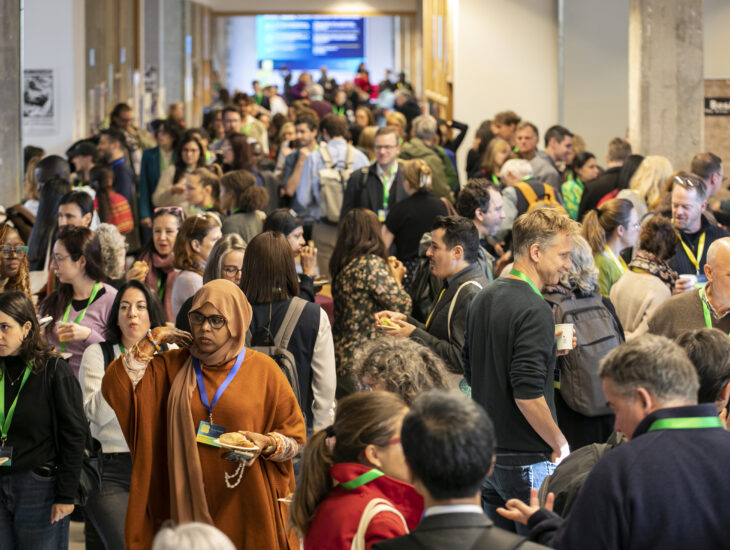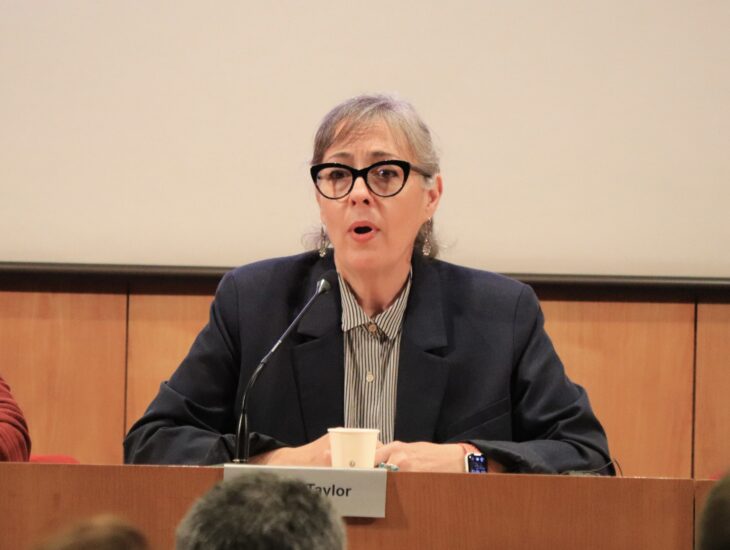Last week ICIP held the seminar “Challenges to Peacebuilding” in Barcelona. Co-organized with the AIPAZ network, the colloquium brought together some forty people involved in peace research. By means of round-table discussions on various themes, the seminar facilitated debate on peacebuilding based on the concept of Johan Galtung’s 3 R’s: resolution, reconstruction and reconciliation.
The first session, on Wednesday, November 27, covered the ethical, legal and military challenges posed by “drones,” or unmanned aerial vehicles. Professors Jaume Saura and Josep Baqués, together with ICIP director Tica Font, discussed the dilemmas now arising from the use of these weapons, which have caused 4000 fatalities over the last decade in over 500 attacks in Pakistan, Yemen, Somalia and Afghanistan. The round-table discussion addressed, for instance, how the use of drones can comply with international humanitarian law or can change the concept of war.
Subsequently, on Thursday, November 28, the seminar began with a round-table discussion on the “Imaginary Sovereignties” project, led by PRIO, and in which ICIP participates. The speakers (Pablo Aguiar, Xavier Alcalde, Rafael Grasa and Pedro Ibarra) presented the uses of the concept of sovereignty and of the nation-state, and their historical evolution. They spoke mostly about the case of the Basque Country, analyzing, for example, the sociology of the pacifist social movements and their impact in the resolution of the conflict.
The third session of the seminar was dedicated to education for peace. Two interesting projects were presented: the analysis, from a peace perspective, of textbooks in the subject of Citizenship (led by Professor Carme Boqué), and the analysis of social science textbooks, also from a peace perspective. The report was published by ICIP.
The fourth round table, with Professors Rafael Grasa, Oscar Mateos and Karlos Pérez de Armiño, dealt with the various theoretical models of peacebuilding and their evolution over the last twenty years. They addressed three practical cases: the reforms applied in Sierra Leone from 2002, at the end of the armed conflict; post-war reconstruction in Mozambique and Angola (former Portuguese colonies); and the current situation in Colombia, in the midst of peace negotiations between the government and the FARC guerrilla movement.
Finally, the seminar addressed the issue of reconciliation with the analysis of justice during transition periods. Professor Claudia Jiménez analyzed the possible channels of rendering justice with the aim of building sustainable peace (analyzing, for instance, the role of the International Criminal Court or the dilemmas posed by amnesty laws and the impunity present in peace processes). At the same round table, the cases of the Peruvian Truth and Reconciliation Commission, and the transition of the FARC in Colombia were discussed with researchers Luis García Villameriel and Yesid Arteta, respectively.
29.01.2013




